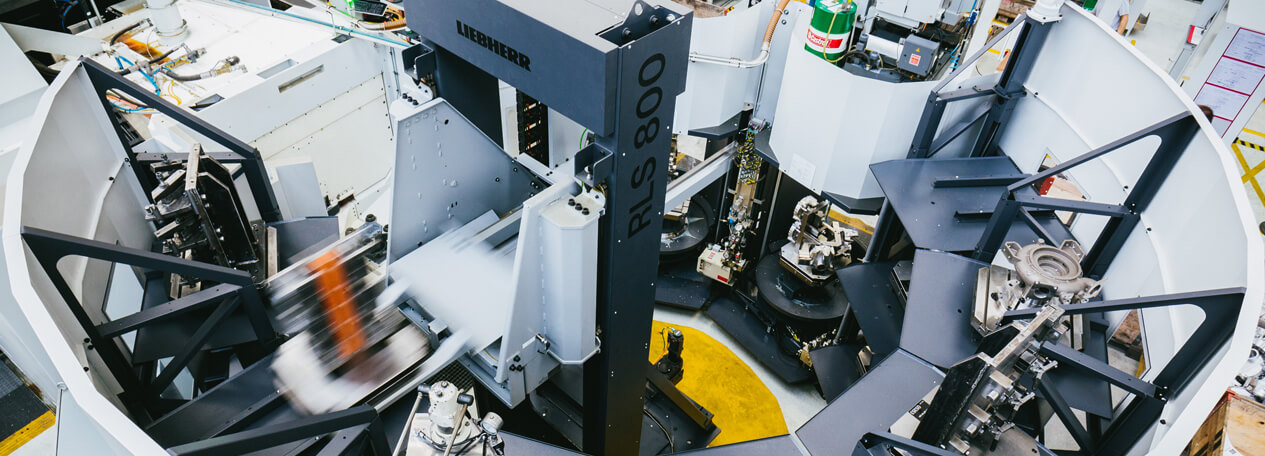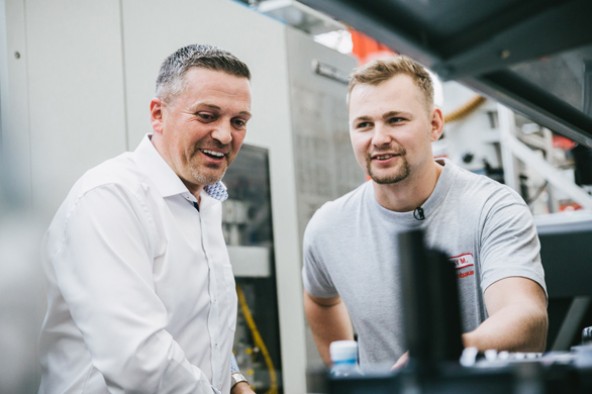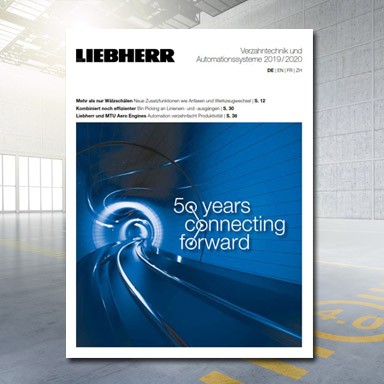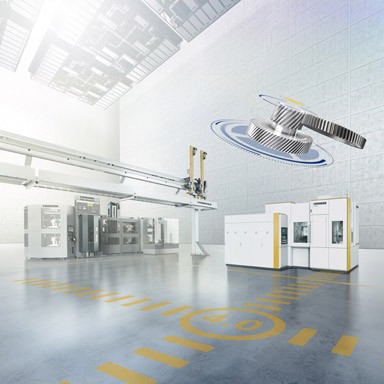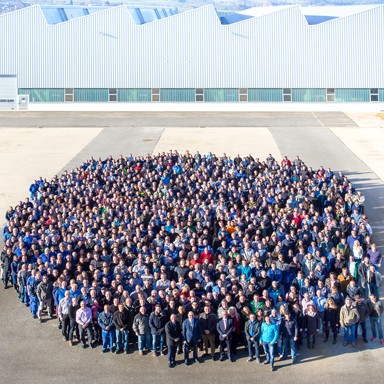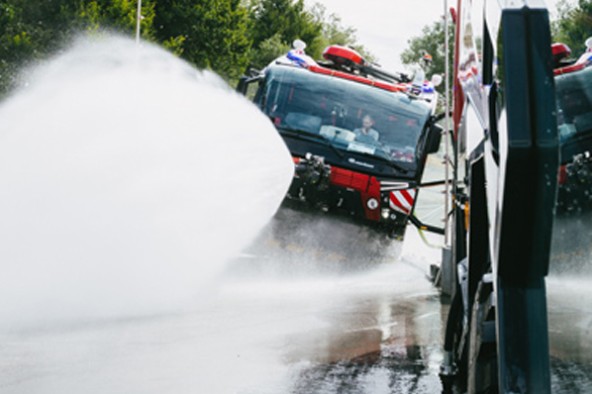
Enormous increase in productivity thanks to Liebherr system
One machining center follows the other in the production plant and there is not much storage space. The automation solution from Liebherr is designed precisely for restricted spaces. “We can store up to 21 pallets in the RLS in a confined space. The entire system also takes into account the individual delivery dates and can be adapted dynamically – depending on prioritization”, is how the machine operator Michael Wizany explains the benefits of the Liebherr system. If a new part is coded in the system, the automation solution automatically recognizes recurring components. “With the use of the rotary loading system we achieve time savings of up to 50 percent”, states the 28-year-old about the enormous increase in production efficiency. Thanks to the rotary loading system the machining center can also be supplied with parts without any manual intervention, which is beneficial particularly after the end of a shift. “We work in a two-shift operation, but can continue to produce up to four hours after the end of a shift thanks to this automation. The next morning, the employee unclamps the parts machined overnight and can perform new clamping processes”, explains Production Manager Michael Schöftner. Schöftner and his team appreciate the stable, robust, and yet high-precision functionality of the Liebherr automation, as well as the fault-free and very reliable operational readiness of the RLS right from the start. “When choosing such a machine, we pay great attention to the manufacturing company. We obtained a fully developed concept with the solution from Liebherr”, adds Schöftner.
However, at Rosenbauer the individual employee is always the decisive factor – despite automation. “Our employees are experts in the area of mechanical production. The machine and the RLS must be programmed and monitored. This is a very responsible job”, states the 39-year-old. And his employee Michael Wizany adds: “Automation needs professionals”. Many employees are also active firefighters and contribute their experience to day-to-day work. Lifeblood for firefighting can almost be felt here.

